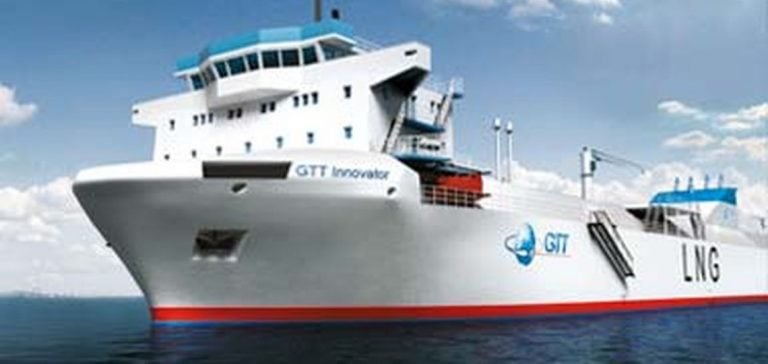French manufacturer of containment systems for transporting and storing liquefied natural gas (LNG), **GTT (Gaztransport & Technigaz)**, has recorded notable revenue growth over the first nine months of 2024. The figure reached 465 million euros, representing a 54.9% increase compared to the same period in 2023. This performance is attributed to the heightened demand for LNG, especially in Europe and Asia.
Since the onset of the war in Ukraine in 2022, Europe has had to offset the reduced flows of Russian gas, which was previously transported via pipeline. In response, the European energy sector has increased its reliance on imported LNG, requiring a rising number of LNG carriers. LNG, in its liquefied state, occupies 600 times less volume than in its gaseous form, thus facilitating its storage and transportation worldwide. Once at its destination, the gas is regasified for integration into national distribution networks.
GTT’s growth strategy and LNG carrier demand
Jean-Baptiste Choimet, CEO of GTT, affirmed that the growing demand for LNG creates additional infrastructure needs, particularly for LNG carriers. GTT has recorded a total of 68 orders for LNG carriers, along with 12 orders for ethane carriers and other specialized liquefaction and regasification units. These orders reflect the robust activity of GTT and the solid position it holds in the LNG storage technology market.
LNG carriers built with GTT systems allow for the transportation of LNG at extremely low temperatures, ensuring the safety and efficiency of transport operations over long distances. This high level of orders aligns with ongoing substantial investments aimed at increasing liquefied gas production capacity and vessel construction.
Financial targets for 2024
GTT has set ambitious financial targets for 2024, aiming for consolidated revenue between 600 and 640 million euros. In terms of profitability, the group is forecasting an **EBITDA** (Earnings Before Interest, Taxes, Depreciation, and Amortization) range of 345 to 385 million euros. The company is optimistic about meeting these targets despite logistical challenges and potential delays in vessel construction.
The stability of production chains is essential to achieving these objectives, and the company anticipates a year-end that meets the upper range of its initial forecasts. The LNG market, in constant expansion, offers GTT solid growth prospects and sustained demand for its storage solutions.
An expanding international market
The growth of LNG is particularly strong in Asia and Europe, where the need for cleaner energy is increasing to offset dependence on local fossil fuels. LNG is emerging as a cleaner alternative, contributing to the energy transition of various developed and emerging economies. This global trend strengthens GTT’s position as a key player in the LNG transport sector and a direct beneficiary of this energy transition.
Orders for LNG carriers are expected to hold steady, if not increase, in the coming years as investments in LNG infrastructure continue to flow. GTT’s expertise and its ability to meet the technical demands of the LNG industry provide it with a strategic advantage in this rapidly expanding sector.






















